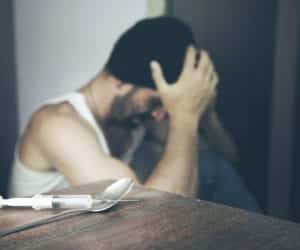How to Prevent Drug Relapse

Relapsing on Substance of Abuse is Preventable With the Right Support
When you are a recovering addict, one of the most common fears is relapsing. After such hard work to obtain sustained sobriety, relapse would put you right back at ground zero. It’s important that if you are a recovering addict that you avoid certain situations and environments that may trigger or pressure you to use.
There are certain rules to follow that can help you avoid relapse during recovery. By implementing these best practices, you are taking the appropriate steps in maintaining your sobriety.
Relapse Prevention Strategies
- Stay Clear of Triggers: Avoiding situations that can pressure you to use is one of the most important relapse prevention strategies that you can partake in. If you are surrounded by others who are using and you are a recovering addict, the likelihood of you relapsing is high.
- Disassociate yourself From Toxic Friendships: If you are looking to truly sustain your abstinence from drugs and alcohol, it’s imperative that you disassociate yourself with friendships that are potentially toxic to you and your new sober lifestyle. This can mean giving up former friendships including those who sold you drugs. Joining a support group that consists of individuals who are going through the same recovery process as you can help you cultivate new and more meaningful friendships.
- Join a Recovery Group: Recovery is something that should be tackled with the help of professionals. This could mean weekly meetings with counselors and therapists. These individuals can help you navigate your struggles and help teach you vital coping mechanisms and trigger management tools.
There are three different stages of relapse:
- Emotional Relapse
- Mental Relapse
- Physical Relapse
When an individual relapses, is it not something that suddenly happens, rather, it is a process. During the emotional stage of relapse, the individual can experience feelings of anxiety and anger. During the mental relapse phase, individuals start to hang out with former social circles that continue to use drugs or alcohol. Individuals will also start to really think about using again. When physical relapse hits, you begin to take part in the act of using drugs or alcohol. Once an individual hits this point in their relapse, they are back at square one.
Components of a Great Prevention Plan
When it comes to addiction recovery, there are certain key components to a prevention plan that will help you stay sober. Some effective relapse prevention strategies are:
- Self-reflect and take a personal assessment about your progress
- Recognize and come to terms with triggers when they are present
- Understand the warning signs of a relapse
- Have a support group in mind in case you relapse
- Set attainable goals
Having the right prevention plan in place is crucial to a successful recovery. Without a proper plan in place, individuals will run the risk of relapse. When an individual is struggling with an addiction, there is always the risk of an overdose. This is why it is so important to continue to constantly work at your recovery so that relapse can be prevented.
If you or a loved one needs help with abuse and/or treatment, please call the WhiteSands Treatment at (877) 855-3470. Our addiction specialists can assess your recovery needs and help you get the addiction treatment that provides the best chance for your long-term recovery.
